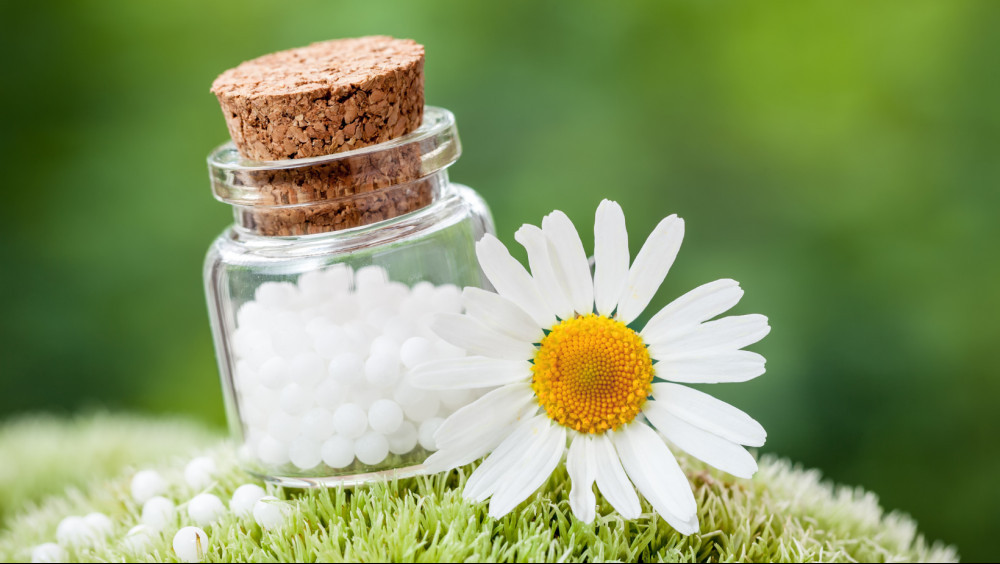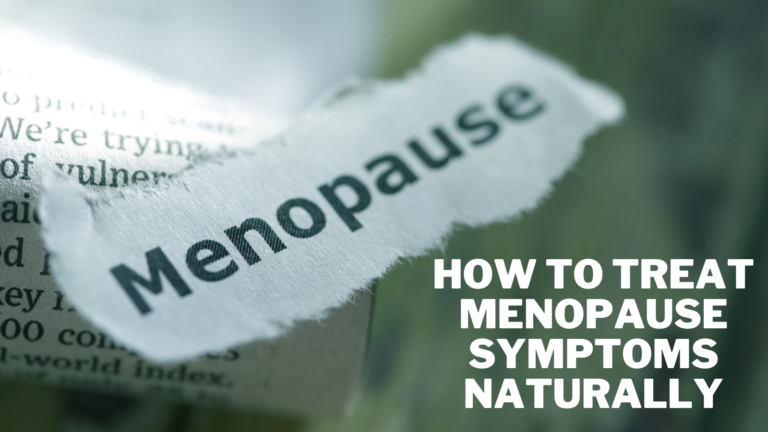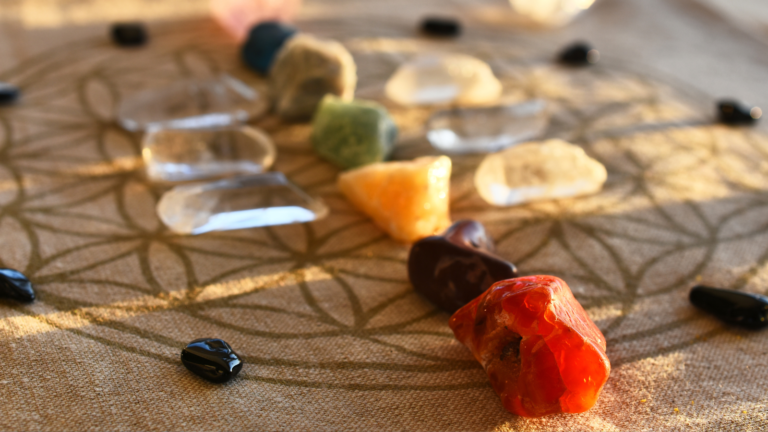What Is Homeopathy And How Does It Work
What Is Homeopathy And How Does It Work
Homeopathy, also known as homeopathy, is a form of medicine that gained popularity in the 19th century.
Its foundation is the idea that “like cures like,” or similia similibus curantur, and it prescribes medicines or other treatments for patients that would cause the symptoms of the diseases being treated in healthy people.
The German physician Samuel Hahnemann introduced this form of medicine based on the “law of similars” in 1796.
He asserted that a high dose of quinine, which had been successfully used to treat malaria on a large scale, had effects on him resembling those experienced by malaria patients.
Thus, he concluded that the best drugs for treating all diseases affected healthy people, similar to the disease's symptoms.
To demonstrate this, he also conducted experiments using a variety of drugs. According to Hahnemann, medication dilution improves effectiveness because high doses worsen illness. As a result, most homeopaths trusted the effectiveness of tiny doses of medication.
Homeopathy was a mild, welcome alternative to the harsh treatments of the day, such as bleeding, purging, polypharmacy, and others, for many patients and some doctors.
Homeopathy, however, was not well received in the 20th century and was criticized for emphasizing symptoms over underlying causes of disease.
There are still some homeopathy supporters and many local, national, and international societies, such as the Köthen, Germany-based International Homoeopathic Medical League.
History Of Homoeopathy
German physician Samuel Hahnemann (1755–1843) created it after growing tired of the medical procedures used at the time.
These included the prescription of poisons like lead and arsenic. He found that the substance that caused disease in larger quantities could be used to treat illness while researching the harmful effects of such substances.
Although the Greek physician Hippocrates (460–377BC) is credited with coining the phrase “like cures like,” Hahnemann is credited with turning it into a therapeutic philosophy.
Hahnemann spent many years testing various organic materials, including plants, minerals, and metals, on himself and a group of volunteers.
He diluted each medication until he reached the highest concentration, at which a response would still be elicited to prevent harmful side effects. The roots of homeopathic medicine can be found in these experiments, known as proving.
Science Behind Homeopathy
According to a comprehensive assessment of the available data conducted in 2015 by the National Health and Medical Research Council of Australia, there is no reliable evidence that homeopathy is effective for any health condition.
But it's crucial to remember that studies considered in evaluating the evidence had to adhere to several strict requirements (e.g., having a sample size of more than 150 participants, the highest rating of methodological quality, and other measures).
This evaluation included 57 systematic reviews that included 176 different studies. The Australian government is currently conducting a fresh review of the available data.
Homeopathy is a contentious subject. Numerous central ideas in the homeopathic theory are at odds with the foundational ideas of science as we know them.
For instance, a homeopathic preparation's “active ingredient” may be so diluted that it is impossible to measure it, making it extremely difficult to investigate these products thoroughly.
However, recent studies have started to look at the physical characteristics of these preparations to see if it will ever be possible to characterize them.
What Science Says About Homeopathy's Safety and Side Effects
- Some goods sold or designated as homeopathic may not be homeopathic; they may contain significant amounts of active ingredients, which may have harmful side effects or interact with other medications. These kinds of homeopathic products have been linked to adverse health effects.
- Ineffective homeopathic treatment can have adverse effects, some of which may be serious, according to a 2012 systematic review of case reports and case series.
- Examples of such products include heavy metals like mercury or iron that are not highly diluted.
- Alcohol may be present in liquid homeopathic products. The FDA permits higher alcohol content in these than in traditional drugs.
- Some of their patients may experience “homeopathic aggravation,” according to homeopaths (a temporary worsening of existing symptoms after taking a homeopathic prescription).
- Clinical studies have not revealed much evidence of this response, but there is little research on homeopathic aggravations. Always tell your doctor if your symptoms change if they do.
- The FDA has warned consumers about various products with homeopathic labels. For instance, in 2017, it warned consumers that some homeopathic teething tablets contained excessive amounts of the toxic belladonna.
- In 2015, it cautioned people against relying on over-the-counter asthma products labelled as homeopathic because they have not been proven safe and effective by the FDA.
How Does Homeopathy Work?
“Like cures like” is a fundamental tenet of homeopathy. In other words, something that causes symptoms in a healthy person may be able to treat an illness with a similar symptom set when used in minimal doses. The goal of this is to mobilize the body's defence mechanisms.
Red onions, for instance, cause your eyes to water. Because of this, it is utilized in homeopathic treatments for allergies. Poison ivy, white arsenic, crushed whole bees, and the herb arnica are remedies for other illnesses.
These ingredients are made weaker by adding water or alcohol, according to homeopathic physicians (also known as “homeopaths”). The mixture is then shaken as part of a “potentiation.”
They contend that this action transmits the healing spirit. Homeopaths also concur that a drug's effectiveness increases with dose.
Many of these remedies don't have any molecules of the original substance left in them. They are available as sugar pellets, liquid drops, creams, gels, and tablets, among other forms.
A homeopath will inquire about your mental, emotional, and physical health during your appointment.
They will give you the medication that best addresses all of your symptoms. The treatment will then be customized for you.
What Information Can We Draw From Evidence?
The effectiveness of homeopathy has been the subject of numerous reviews of scientific data. According to the House of Commons Science and Technology Committee, there is no proof that homeopathy is effective as a treatment for any medical condition.
The claim that substances that can cause certain symptoms can also help treat them is unsupported by any evidence.
The claim that substances can become medicines by being diluted and shaken in water is unsupported by any evidence.
Homeopathic theories are not supported by established scientific theories and are incompatible with long-held beliefs about how the physical universe functions.
The “like cures like” principle is “theoretically weak,” according to the Committee's 2010 report on homeopathy, which also stated that this is the “settled view of medical science.”
For instance, it is noteworthy that many homeopathic remedies are diluted to the point where it is unlikely that even one molecule of the original substance will remain in the finished remedy. In situations like these, homeopathic treatments are made entirely of water.
Some homeopaths think the original substance “imprints” itself on the water during the succussion process.
However, the mechanism by which this could happen is unknown. The 2010 report stated that it was “scientifically implausible” for substances previously dissolved in ultra-dilutions to retain their imprint.
Due to a phenomenon known as the placebo effect, some people who use homeopathy may experience an improvement in their health.
You might pass up other more effective treatments if you decide on medical procedures that only have a placebo effect.
Benefits Of Homeopathy Medicine
1. Treat Warts
Human Papilloma Virus, or verruca or condylomata, is the most common cause of warts and localized benign skin growths.
The virus enters through wounds like cuts and bruises, which multiply quickly and cause warts and blister-like skin growths. Common warts do not hurt or bother people unless they are located in constantly irritated areas.
Homeopathy has successfully removed existing warts, preventing new ones and reducing the likelihood of new warts developing on the skin.
There is little to no local application for medications which can be taken orally. The remedy is internal and long-lasting.
Depending on the severity and longevity of warts, the course of treatment varies from patient to patient.
Depending on how long the wart formations have been present, there are many medications in homeopathy for the treatment of warts that are essentially safe and can be continued for extended periods.
Avoid touching warts on others or yourself, never pick or scratch a wart, and frequently wash your hands.
Never attempt to burn or cut a wart yourself. Avoid sexual activity and see a doctor if your partner has genital warts.
Reduce Acne
Acne develops due to dirt, debris, and bacteria clogging skin pores. Sebum is naturally produced by the skin, maintaining the skin's elasticity.
When too much oil is produced, it can sometimes clog pores and draw dirt into the skin. Although it can affect anyone at any age, acne is most frequently associated with teenagers.
Several factors, including hormonal imbalances, unhealthy food and lifestyle choices, stress, and the menstrual cycle, cause acne development.
The condition is minor, but scarring may occur if not treated immediately. Homeopathy has demonstrated effectiveness in treating acne as it addresses the underlying cause and encourages healthy skin.
Non-inflammatory and inflammatory acne are the two main types of acne. Papules, pustules, nodules, and cysts are examples of the inflammatory type; whiteheads and blackheads are the non-inflammatory kinds.
By focusing on the underlying causes or triggers of acne, homeopathy provides long-term remedies for its prevention.
It treats the underlying hormonal imbalances and lessens the pain, swelling, and inflammation that are acute symptoms of acne.
Relief From Pigmentation
Pigmentation is the darkening of facial skin brought on by excessive melanin production.
Melasma is the medical term for the pigmentation patches on the face, particularly on the cheeks, nose, forehead, and upper lip. Although it can happen to men occasionally, facial pigmentation is more common in women.
The use of birth control pills, menopause, hormonal changes during pregnancy, and hyperthyroidism are major contributing factors.
Stress, insufficient sleep, and excessive sun exposure are additional triggers. Homeopathy has a secure and reliable solution for treating facial pigmentation.
They assist by bringing the skin's tone back to normal and stopping the condition's further development.
Prevents Allergies And Asthma
Did you know that the most prevalent medical condition in the world is an allergy? The prevalence of allergies is rising today due to changes in the environment, society, and way of life.
Inadequate nutrient intake, environmental pollution, stress, lack of physical activity, medication side effects, obesity, tobacco and alcohol use, and genetics are some factors that increase the risk of developing allergies.
Common allergic symptoms include but are not limited to, sneezing, watery or itchy eyes with redness, coughing, dry, itchy skin, ear discomfort, runny or blocked nose, and breathing problems.
Allergy treatment options in homeopathy are efficient and constitutional. This implies that a remedy is selected, considering the patient's symptoms.
A thorough consultation is required before beginning this course of treatment, which necessitates the expertise and direction of a qualified homeopath.
People can use homeopathic treatments to reduce their symptoms in the early stages of an allergy. Although the allergy won't be completely cured, this will offer brief, side-effect-free relief.
The airways that carry air into and out of your lungs become more sensitive to the particles breathed in with the air when you have asthma.
It is more common in people who smoke or are exposed to it, families with a history of allergies, and the general population.
A person with asthma who breathes in an allergen may experience breathing difficulties because the lining of their airways, the muscles surrounding them, or both may swell and constrict in response. Chest tightness, wheezing, and coughing are common manifestations of symptoms.
Homeopathy provides effective and long-lasting treatments for asthma because it addresses the underlying causes of the condition.
The treatments support the body's recuperative processes by bolstering its natural healing system.
Homeopathy safely and effectively treats the allergy's underlying causes when an allergic reaction is the underlying cause of asthma.
Helps To Reduce Chronic Pain
Chronic pain is one of the most frequent reasons people try alternative pain management techniques.
Aching muscles, sprains, bruises, aching, swollen, or stiff joints and muscles, shooting pains brought on by nerve damage, arthritis, and back pain—which is worse in the morning but improves with movement and hot water fomentation—are some of the chronic pains that can be treated with homeopathy.
Homeopathy tailors care to each patient's unique needs and may be less expensive than traditional pharmaceutical drugs.
Typically, a combination of treatments is prescribed, some of which may be able to alleviate pain. Long-term advantages come with safe treatment.
Helps To Control Anxiety And Depression
Anxiety is characterized by an inability to unwind and a constant state of worry. For days on end, little things can make them tense. People who experience chronic anxiety worry and become tense even without any triggers.
Always expecting the worst, they obsessively worry about things like money, health, jobs, and families, to name a few. Their worry exceeds what the circumstances call for.
Physical symptoms like exhaustion, headaches, muscle tension, aches, difficulty swallowing, shaking, twitching, irritability, sweating, and hot flashes can appear occasionally. Additionally, they might feel queasy and need to use the restroom frequently.
Depression is risky because it can be challenging to recognize the symptoms in the early stages.
People frequently ignore it or, worse, assume that it is just part of their psychological makeup. Also having trouble diagnosing the condition are friends and family.
Because the dosage and number of conventional medications are increased when adequate results are not observed, they are ineffective in treating depression. This instance of “polypharmacy” might make the condition worse rather than better.
By comprehending the physical and psychological causes of the patient's symptoms, homeopathy offers treatments for anxiety disorders and depression.
They receive a treatment that best addresses their full spectrum of symptoms, improving their overall health.
Homeopathy offers effective treatments for depression tailored to each patient's unique circumstances and past. The effects are long-lasting, secure, and occasionally superior to standard medical procedures.
Helps With PMS And Menopause
Premenstrual syndrome is the term used to describe the emotional and physical symptoms that women experience a few days before the start of their period.
Some mental symptoms include irritability, mood swings, and a depressive state. Some physical symptoms include breast tenderness or swelling, headaches, abdominal bloating, constipation, diarrhea, and acne.
The severity and variety of the symptoms vary from woman to woman and typically go away once the menstrual flow begins.
PMS can be treated safely and effectively with homeopathy. They provide physical and mental stress relief and are made with natural ingredients.
Menopause is a normal biological process when a woman's menstrual cycles end due to the ovaries' gradually declining function.
Between the ages of 45 and 52, women go through menopause. Each woman is affected differently during this time, and periods eventually stop altogether after becoming erratic and scant.
Hot flushes, osteoporosis (weak bones), weight gain (obesity), and hair loss are examples of physical symptoms, while depression, mood swings, anxiety, irritability, and sleeplessness are examples of mental symptoms.
Menopausal symptoms can be treated completely, safely and naturally with homeopathy. The various symptoms that women experience during menopause can be treated with the aid of natural homeopathic remedies.
Conclusion
Homeopathic medicines are significantly less expensive than traditional prescription drugs because they are made from inexpensive, generic, non-patented, and non-patentable medicinal substances.
Homeopathic treatments for acute conditions generally cost less than €1 per day, while those for chronic conditions only cost a few cents per day (or occasionally even less).
I trust you enjoyed this article on What Is Homeopathy And How Does It Work. Please stay tuned for more blog posts to come shortly. Take care!
JeannetteZ
>>>Please click here to read my all-inclusive article about A Comprehensive Guide To Healing Naturally<<<
>>>Are you interested in Natural Healing through Herbs? Please click here for my #1 Recommendation<<<
Your Opinion Is Important To Me
Thoughts? Ideas? Questions? I would love to hear from you. Please leave me your questions, experience, and remarks about this article on What Is Homeopathy And How Does It Work in the comments section below. You can also reach me by email at Jeannette@Close-To-Nature.org.
Disclosure
This post may contain affiliate links. As an Amazon Associate and other affiliate programs, I earn from qualifying purchases at no extra cost to you. Read my full affiliate disclosure.
You might also enjoy these blog posts:
Best Plants For Beginner Gardeners
Best Tips For Maintaining A Healthy Work-Life
Secrets To Getting Everything You Want In Life
How To Treat Menopause Symptoms Naturally



















